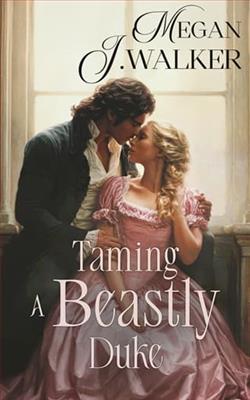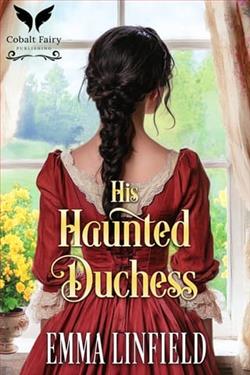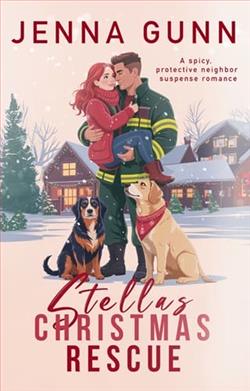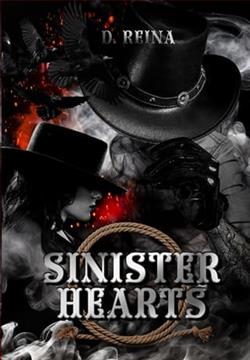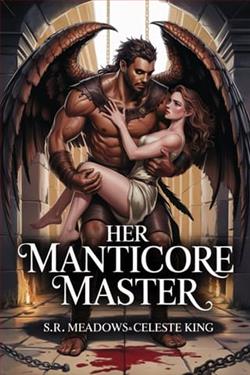Page 77 of The Someday Daughter
“Audrey,” she says. I wish she’d stop saying my name, reinserting me into this conversation that I don’t want to be part of. “I didn’t—”
“Yes, you did.” When I start walking again, she does, too. “You made me out to be someone in all your lectures and on all your social media, so I became that person, or she became me—I can’t even separate it out.” I’m waving a hand through the air in front of me as I walk. I’m not even thinking the words, they’re just coming out—for once, I’m just letting them all come out. “And none of it was even true. And it feels like if I don’t keep up with this story you’ve told about me, I’ll just stop existing or something.” I look at her, and it makes tears burn behind my eyes. “Sometimes I can’t even tell if I chose my personality. Sometimes I don’t even know who I am.” We stop at a crosswalk and a car screams past, sending a gust of hot air across us both. “It’s like you just made me up.”
She looks stricken. Camilla St. Vrain, who has an answer for everything. But if anyone should get to be speechless here, it’s me. I’m sick of waiting for the crossing light, and I’m sick of waiting for her. I turn on my heel and start up Charles Street.
“Audrey, wait.” I hear her jog after me, pristine white sneakers cutting up the sidewalk. “Honey, I had no idea you felt that way. I wish—”
“You didn’t ask,” I say, looking straight ahead. We could be in a speed walking competition, we’re moving so fast. “Maybe you were too busy thinking about your actualsomeday daughterto check in with your spare.”
“Okay, enough.” She takes my hand, and before I can pull it away, she locks our fingers together. I squirm my palm against hers and she squeezes even tighter. It’s torture.
“Let go,” I say, loudly enough that the person walking past us stops to stare. Then they keep staring, and when they pull a phone from their bag, I know they know who we are.
“Shit,” my mother says, and starts tugging me toward the pedestrian overpass. We hustle up the stairs and over the sound tunnel of Charles Street, cars sprinting beneath us. When I glance back, the person is gone.
“It’s fine,” I say. When she keeps pulling my arm without slowing down, I say it again. “Mom, it’sfine, they’re gone. Let go of me.”
But she doesn’t. “If I let go, you’ll run away, and we need to talk about this.”
“Where?” I have to shout so she’ll hear me over the traffic. “Suspended up here on top of the highway?”
“That park.” She points down the stairs on the other side ofthe overpass, where a green strip separates Charles Street from the river. “Come on.”
I strain against her hand again, and when I finally break free, she turns around to scrabble after me.
“I’m not running away!” I say, and for a moment we pause to stare at each other. We’re both panting. “I just don’t want to be led around like a kindergartner.”
“Fine.” She sucks in a breath and turns around, leading me the rest of the way over the street and into the park. When she motions me onto a bench, I sit at one far end and indicate that she should do the same. She does, turning her entire body toward me. She takes off her sunglasses.
“Audrey, I’m sorry.” She lets it hang there between us, and I scoff out a laugh.
“For which part, Mom?”
“All of it.” She folds her hands together and squeezes them. “I was wrong not to tell you about my first pregnancy, but it was another life. It was—”
“It’s not another life,” I say. “It’s your life. The same one. And Sadie’s here, right now.”
“But I didn’t know.” Her voice scrapes, and she clears her throat. “I had no idea who Sadie was until last night, same as you.”
“Because you pushed her away,” I say. “When she reached out, all those years ago—”
“Magnolia,” she says simply. It takes her a few minutes to keep going, like she’s tamping everything down to make space for her words to come out. “Magnolia didn’t tell me that Sadie reached out when she turned eighteen. I knew her birthday was coming up, of course, and that she’d have access to that information, if shewanted it.” She draws a shaky breath. “But Magnolia handles all the mail, and she hid it from me, and so I assumed Sadie didn’t want to know who her biological mother was. Or that if she did know, she didn’t want to contact me. And that was absolutely her choice to make. So I let it go. I moved on, to focus on my daughter.” Her eyes are steady on mine. “You.”
I shake my head. “Why would Mags hide it?”
“A misguided attempt to protect my career,” she says wearily. “She’s as shocked as I am, believe me. She didn’t know who Sadie was until last night, either.” She looks up at me. “All those years ago, when Sadie reached out to her anonymously, all Mags knew for sure was that I’d spoken ofyouas thesomeday daughter. She thought that if the world found out I’d given birth to another child—”
“You’d look like a liar,” I finish for her. “But it wasn’t misguided; it was true. You did lie.”
“Audrey—” she starts, but I cut her off.
“Who’s the book about, Mom? Who’s thesomeday daughter?”
We stare at each other. Warm air moves off the water, over the grass. My mother draws a breath.
“I wrote the book to process my own decision not to become a mother, that first time.” She glances at the river, presses her lips together. “I was twenty when I gave birth to Sadie. My parents were gone, I had no family, I hardly knew her father. When I held her in the hospital, I knew I wasn’t ready to be a mother. I knew giving her to her true parents was the right thing to do. I didn’t question it then, while she was with me. It felt so clear.” She runs her thumb over the back of her hand, pressing hard. “I only questioned it later, and then I questioned it for years. I wrote the bookto help me untangle the choice I’d made, and to forgive myself for not doing what the world told me I was created to do: desire motherhood, choose it above all else.” She turns back to me, holds my gaze. “And I wrote it as a kind of love letter, something to put into the world for the daughter I knew I’d never mother.”
My breath is a desperate tangle in my chest. When I speak, my voice wavers. “So it was about her. I’ve never been part of this at all.”









